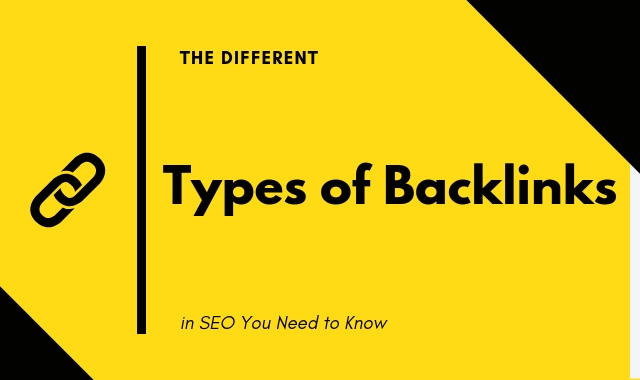In the intricate web of digital marketing, website backlinks stand as the linchpin of online authority and visibility. These simple yet powerful connections between websites serve as endorsements in the eyes of search engines, guiding the path to higher rankings and increased organic traffic. Understanding the role of backlinks is essential for anyone navigating the landscape of SEO and striving to elevate their online presence. Join us as we delve into the fundamentals, strategies, and importance of backlinks in shaping the digital footprint of businesses and brands worldwide.

What are Backlinks?
Backlinks, are simply links from one website to another. When one website links to another, it signals to search engines that the linked-to site is credible, authoritative, and trustworthy. This endorsement improves the linked site’s search engine ranking, leading to increased visibility and potentially more traffic.
Types of Backlinks
Not all backlinks are created equal. They can be classified into two main types based on their source and quality:
Natural Backlinks: These occur organically when other websites find your content valuable and link to it without any request from you. Natural backlinks are highly desirable as they indicate genuine interest from other sites.
Manual Backlinks: These are acquired through outreach campaigns, guest blogging, or partnerships. While effective, the quality of manually built backlinks depends on the authority and relevance of the linking site.
The Importance of Backlinks in SEO
Search engines use backlinks as a key ranking factor because they view them as votes of confidence and trust. Websites with a higher number of backlinks tend to rank higher in search engine results pages. Here’s why backlinks matter:
Improved Search Engine Rankings: Backlinks are one of the top factors Google uses to determine the authority and relevance of a website for specific search queries.
Increased Referral Traffic: Quality backlinks from relevant sources can drive direct traffic to your website, expanding your audience and potential customer base.
Building Authority and Trust: When reputable sites link to yours, it enhances your brand’s authority and credibility in your industry.
Strategies for Building Quality Backlinks
Building an effective backlink profile requires strategic planning and execution. Here are some proven strategies:
Create High-Quality Content: Content that is informative, valuable, and engaging naturally attracts backlinks. Aim to produce content that others in your industry will want to share.
Guest Blogging: Writing guest posts for authoritative websites in your niche can earn you valuable backlinks while exposing your brand to a new audience.
Broken Link: Identify broken links on other websites and offer your content as a replacement. This strategy helps in fixing broken links and gives you an opportunity to gain a new backlink.
Social Media: Sharing your content on different social media platforms can increase its visibility and encourage others to link back to it.

Influencer Outreach: Collaborate with influencers in your niche who can share your content with their followers, potentially leading to backlinks from their websites.
Directory Listings and Local Citations: Submit your website to reputable directories and local listings relevant to your industry. These can provide valuable backlinks and improve your local SEO.
Best Practices and Considerations
While building backlinks can significantly benefit your SEO efforts, it’s essential to keep the following best practices in mind:
Focus on Quality, Not Quantity: A few high-quality backlinks from authoritative sites are more valuable than many low-quality backlinks.
Relevance Matters: Seek backlinks from websites that are relevant to your niche. A link from a relevant site carries more weight in search engine algorithms.
Monitor Your Backlink Profile: Regularly audit your backlinks to identify and disavow any spammy or low-quality links that could harm your SEO efforts.
In conclusion, backlinks remain a cornerstone of effective SEO and digital marketing strategies. By understanding their significance, implementing proven tactics, and adhering to best practices, you can harness the power of backlinks to elevate your website’s visibility, authority, and ultimately, your business success in the digital realm.

Types of Backlinks in SEO
In the realm of SEO (Search Engine Optimization), understanding the various types of backlinks is crucial for effectively building a strong online presence. Here’s a breakdown of the main types of backlinks and their significance:
- Natural Editorial Links
These are links that are given naturally by websites and pages that want to reference your content because they find it valuable and relevant. Editorial links are typically the most powerful type of backlinks as they come from authoritative sites and are not solicited. - Manual or Outreach Links
Manual or outreach links are acquired through deliberate efforts such as guest blogging, influencer outreach, or partnerships. This involves reaching out to other websites, blogs, or influencers in your industry to request a link back to your content. While effective, the quality of these links depends on the authority and relevance of the linking site. - Self-Created Links
These are links that you create yourself, often through various online platforms such as forums, social media profiles, blog comments, or directories. While these links can contribute to your overall backlink profile, they are generally lower in quality and may not carry as much weight in terms of SEO. - Image and Video Links
Links can also be embedded within images or videos. When someone clicks on an image or video that links back to your website, it can contribute positively to your backlink profile. Optimizing alt text and descriptions for images and videos can enhance their SEO value. - Guest Blogging Links
Guest blogging involves writing and publishing content on another website or blog in exchange for a link back to your own site. This method not only helps in building backlinks but also establishes you as an authority in your industry and exposes your brand to a new audience. - Profile Links
Profile links are created by registering and creating a profile on various forums, social media platforms, or websites. While these links are typically low in authority, they can still contribute to your overall backlink strategy, especially when they come from reputable sites. - Directory Links
Directory links are acquired by submitting your website to online directories. While directories have lost some SEO value over the years due to abuse, niche-specific and authoritative directories can still provide relevant backlinks. - Educational and Government Links
Links from educational (.edu) and government (.gov) websites are highly regarded due to their authority and trustworthiness. These types of backlinks are difficult to acquire but can significantly boost your SEO efforts if obtained legitimately. - Social Media Links
While social media links are considered nofollow by default (meaning they do not directly contribute to SEO rankings), they can still drive traffic to your website and enhance brand visibility, which indirectly benefits your SEO efforts.